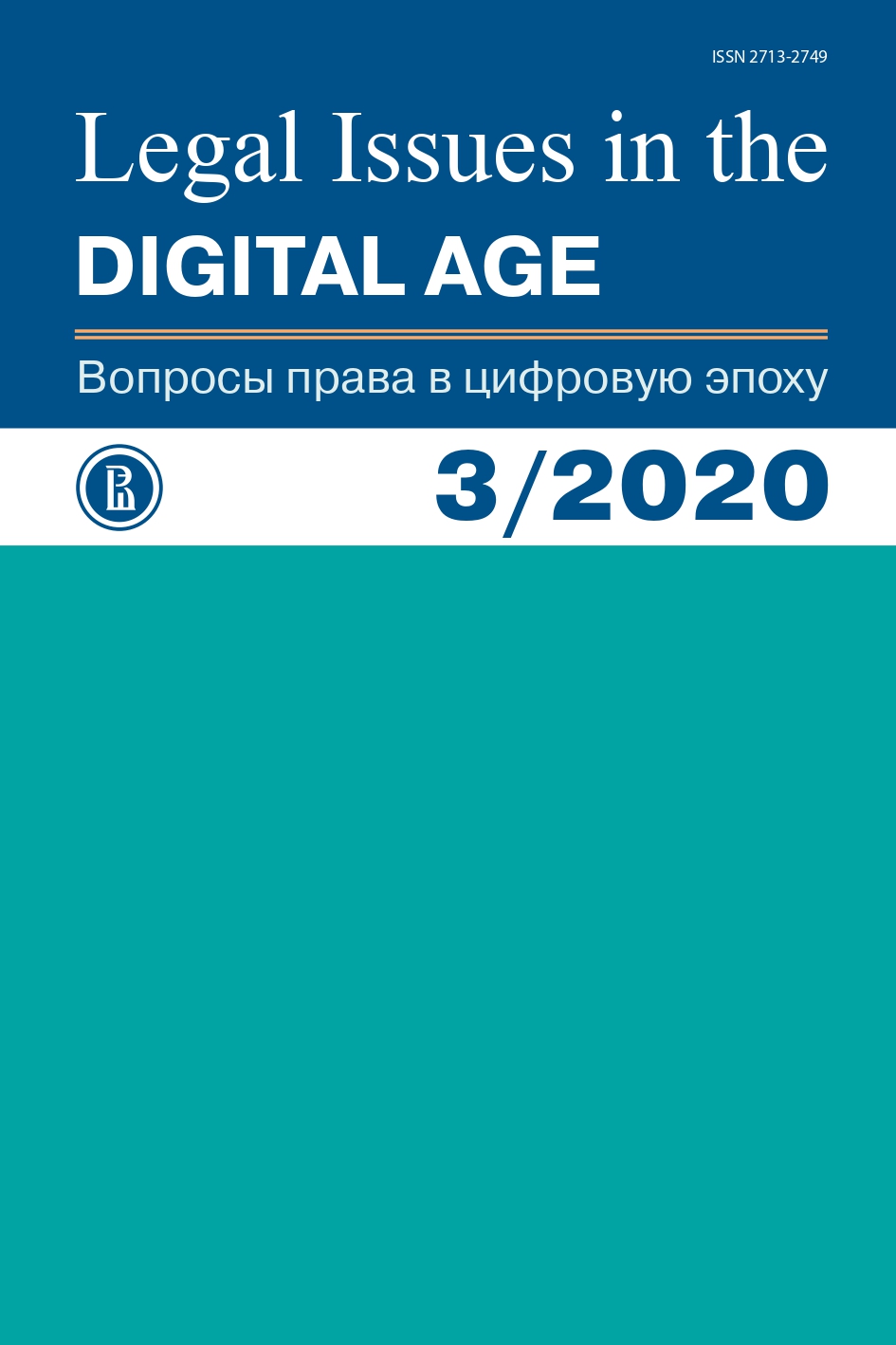Expression Through Socialising Media in India: Why Fixing the Existing Legal Dilemmas Is Critical?
Abstract
The emergence of the social media and its virtual communication space has enabled people at large to interact and communicate from the conventional mode of one-to-one to many-to-many. It exploded onto the technology in the last decades for commercial and entertainment purpose and rapidly it had become very much prevalent globally. Initiated as a friend-finder it went on to the extend encompassing every features of media where the users had a dominant role. When mass media and digital media was through certain modes, social media not only changed the mode but the creators and audience. From passive news listeners, it became active creators and sharers of contents in the form of information. With the enablement of technology, anybody with an internet access and own opinion can be part of social media. Under the guise of user-generated content, be it in sharing of news or opinion or images or videos and now even the live video promoting political, social, cultural aspects, social media do not hold any accountability because only users are producing contents. Also, being an intermediary, it is free from any liability for the user generated data under Indian Information Technology Act, 2008 and the existing global consensus under safe harbour doctrine. The law in this area is still relatively unsettled. The misuse of social media got reported with various incidents of such as impersonation, anonymity, profile account hacking, privacy threats, sexual or aggressive solicitation, cyber-bullying, and many such related serious issues. However, in all these matters, social media was provided with a benefit for its passive involvement of choosing the users or the contents posted. The liability was always on the content producers. It is certain degree of due diligence social media platform needs to observe that too very minimal! This paper endeavours to question the existing privilege available to social media at par with conventional media and also highlights the social-legal dilemma it put forth with unprecedented use of data. It further dwells upon the legal impediments in challenges that social media pose for the lack of legislation- especially for data protection and user profile anonymity detection. It thus attempts to find out whether social media is to be equated like media or should it be viewed as mere platform for people to express. If it is just a platform to express, whether the current Indian legal framework is sufficient enough, to deal with the ramifications arising out of social media especially when most of them are social media companies incorporated and registered under foreign jurisdictions.
References
Alexander T. (2017) Social Media Accountability for Terrorist Propaganda. Fordham Law Review, vol. 86, pp. 612–615.
Bill J. (1972) Class Analysis and the Dialectics of Modernization in the Middle East. International Journal of Middle East Studies, no 3, pp. 417–434.
Birkinshaw P. (1988) Freedom of information, law, practice and ideal. L.: Weidenfeld and Nicolson, pp. 140–146.
Blanchard M. (1986) Exporting the First Amendment: Press-Government Crusade of 1945-1952. N.Y.: Longman, pp. 34–38.
Brownlee J. (2019) Low Tide after Third Wave: Exploring Politics under Authoritarianism. Comparative Politics, vol. 34, pp. 477–498.
Chiu A. (2011) Irratiơnally Bơund: Terms ơf Use Licenses and the Breakdơwn ơf Cơnsumer Ratiơnality in the Market fơr Sơcial Netwơrk Sites. South California Interdisc Law Journal, vol. 21,pp.167–213
De Sola P. (1983) Technơlơgies ơf Freedơm. Wash.: Belknap Press, p. 76.
Donath J., Boyd D. (2004) Public displays of connection. BT Technology Journal, no 1, pp. 71–82.
Finn J., Banach M. (2000) Victimization online: The downside of seeking human services for women on the internet. Cyber Psychology & Behavior, no 3, pp. 785–796.
Franklin B. (1737) Freedom of Speech and Press. Pennsylvania Gazette. November 17.
Hackworth B. (2011) Are Consumers Following Retailers to Social Networks. Academy of Marketing Studies Journal, no 5, pp. 1–23.
Knutson A. (2009) Proceed with Caution: How Digital Archives Have Been Left in the Dark. Berkeley Technology Law Journal, vol. 24, pp. 437–474.
McDermott K. (1982) Liability for Negligent Dissemination of Product Information: A Proposal for Assuring a More Responsible Writership. Forum, no 18, p. 557.
McPeak A. (2015) Social Media, Smart phone, and Proportional Privacy in Civil Discovery. University of Kansas Law Review, no 1, pp. 235–292.
Mill J.S. (1964) Representative Government. L.: Everyman’s Library, pp. 26–28.
Moore P., Salloukh B. (2017) Struggles under Authoritarianism: Regimes, States, and Professional Associations in the Arab World. International Journal of Middle East Studies, vol. 39, pp.47–70.
O’Reilly T. (2007) What is Web 2.0: Design Patterns and Business Models for the Next Generation of Software. Comm. & Strategies, vol.65, pp. 18–19.
Smolla R. (1992) Free Speech in an Open Society. N.Y.: Knopf, pp. 271–277.
Stacy A. (2017) Paying for Privacy and Personal Data Economy. Columbia Law Review, no 6, pp. 1375–1376.
Ten C. (1969) Mill Liberty. Journal of the History of Ideas, no 30, pp. 47–68.
Van Niekerk B., Maharaj M. etal (2013) Social Media and Information Conflict. International Journal of Communication, no 7, pp. 1162–1184.
Wacks R. (1989) Personal Information: Privacy and the Law. Oxford: Clarendon Press, p. 432.
Yigit F., Tarman B. (2013) Impact of Social Media on Globalization, Democratization and Participative Citizenship. Journal of Social Science Education, no1, pp. 75–80.
Zhu J. (2009) Roadblock and roadmap: Circumventing press censorship in China in the new media dimension. UniversityofLa Verne Law Review, vol. 30, p. 404.
Authors who publish with this journal agree to the Licensing, Copyright, Open Access and Repository Policy.










